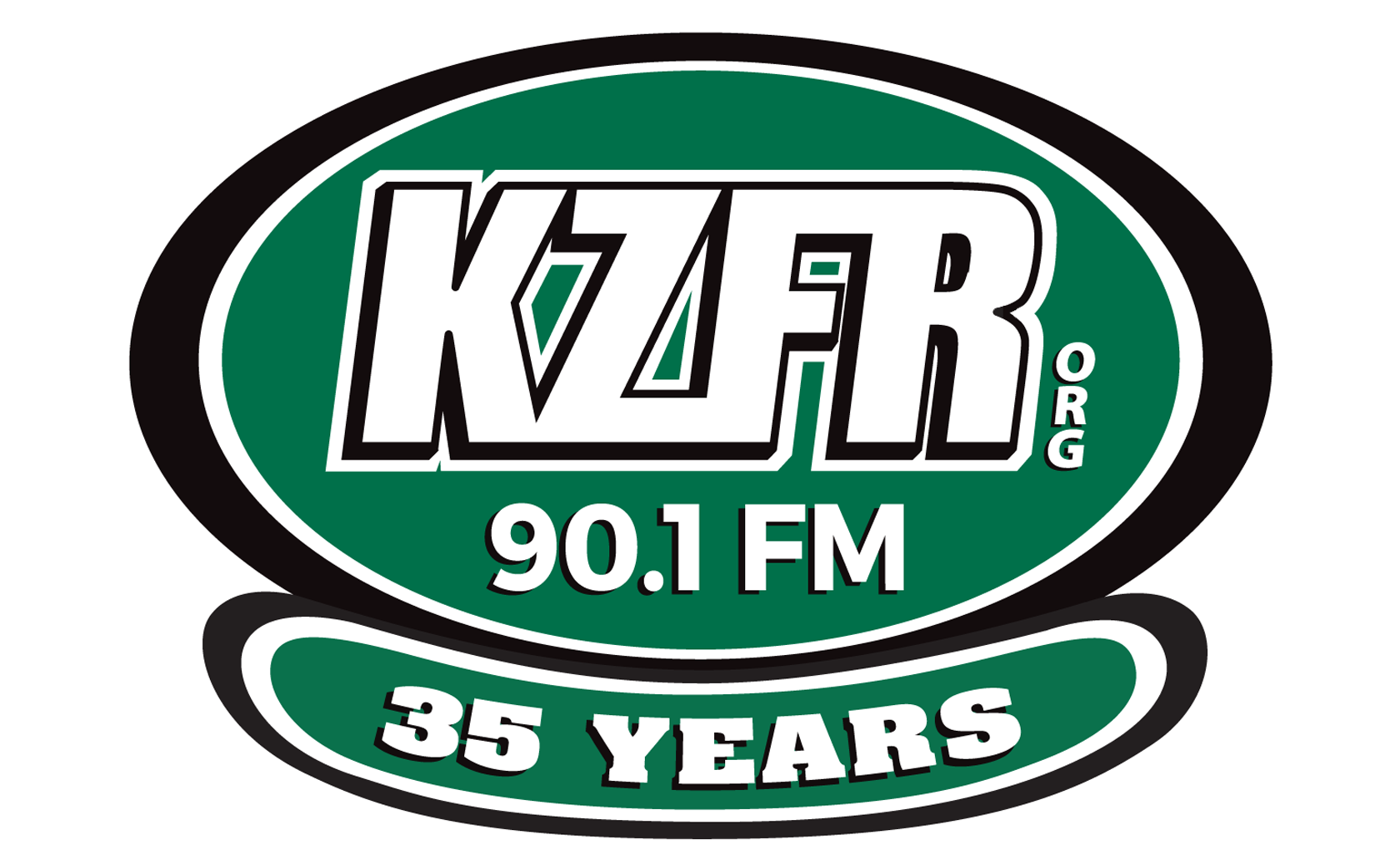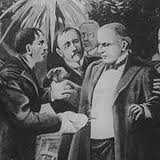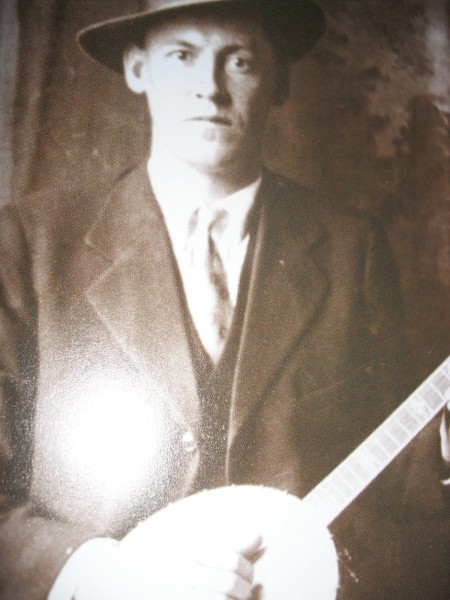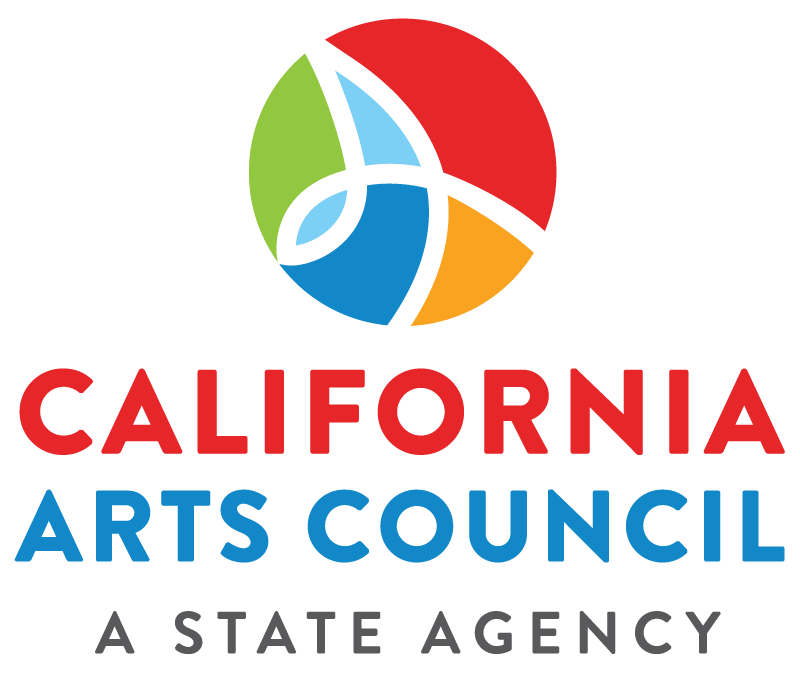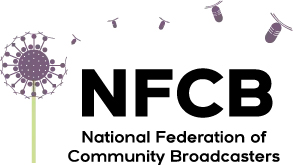The 25th President of the United States, William McKinley (b. 1843) was shot at the Pan-American Exhibition in Buffalo, New York on September 6, 1901. His assassin was an anarchist, Leon Czolgosz (pronounced 'Solgotz'), who shot him twice in the abdomen. McKinley was treated by doctors at the exhibition’s hospital. They removed one bullet but failed to find the second. Here’s an irony: The medical facility didn’t have electric lights but the newly invented X-Ray machine was on display nearby. The doctors couldn’t see the bullet because of poor lighting but were afraid to use the newfangled X-Ray machine because it was newfangled. McKinley seemed to be recovering but succumbed suddenly on September 14th from infection. Like the previously assassinated President James Garfield he wasn’t really killed by the assassin, but by his doctors. On the long train ride taking the president’s body back to Washington the tracks were lined by citizens who sang the old hymn that was supposedly McKinley’s last words, “Nearer My God to Thee.”
If you’ve been watching the Ken Burn’s PBS documentary about Teddy and Franklin D. Roosevelt then you know that Teddy’s populist assault on big business didn’t earn him much favor with his GOP peers who had begrudgingly put him on the ballot as Vice-Presidential candidate under President McKinley. When McKinley was assassinated there was much weeping and gnashing of teeth in Republican circles as TR ascended to the White House. And with McKinley gone there was also much optimism among Democrats, especially the southern Democrats, that the progressive reforms that TR championed would be more to their liking.
“White House Blues” is about McKinley's assassination but its musical
origins are found in the murder ballad “One Mo’ Rounder Gone” also known more
popularly as “Delia.” They share similar musical form and the song “Delia” can
be traced back to 1900 when Delia Green was murdered in Savannah, Georgia. “Delia” was a regionally popular topical blues tune at the time of
McKinley’s death and as one headline is replaced by another, the song got
re-tooled and the story retold as “White House Blues.”
But the new song is not really a blues! And there’s nothing dirge-like about it either. It’s actually rather upbeat; ‘jaunty’ as one musicologist points out, and slyly humorous:
Hey Mr. McKinley, Why didn't you run?
See that man a-comin' with a Johnson Forty-One
From Buffalo to Washington
McKinley hollered, McKinley squalled
Doc said “McKinley, I can't find the ball
You're bound to die, you're bound to die
Its relationship to “Delia” and its cavalier, irreverent attitude clearly suggests it’s a song of southern origins. McKinley was not a popular president in the south or in most rural areas. He was a northern Republican who had defeated southern favorite son and Christian fundamentalist preacher William Jennings Bryant in two presidential elections. He was a vocal supporter of Wall Street and the “Trusts” -- monopolistic companies run by a handful of millionaires (like J.P. Morgan) who were thought to control labor’s wages and to manipulate prices. Perhaps worst of all, McKinley had served in the Union Army during the war between the states. His death was not deeply mourned across the south.
Roosevelt's in the White House
doin' his best
McKinley's in the gravehard, he's takin' his rest
He's gone a long, long time.
In between the lines there is a not-so-subtle "Good Riddance."
Bascom Lamar Lunsford was a banjo-playing lawyer and folklorist from
North Carolina
who sang a early version that he called "Czolgosz.” He told Library of
Congress collectors that he learned it from someone named Willard Randolph in
about 1923. The first popular recording of “White House Blues” was
Charlie Poole’s classic rendition in 1926. Poole, also from North Carolina, had been performing since
1916 and he must have heard it in his travels across the south. His is the same
version as Lunsford's.
Over the years the lyrics of “White House Blues” have
provided inspiration for a number of musical takes on sitting
presidents from the Depression-era Herbert Hoover to scandal-ridden Richard
Nixon, and more recently the dark days and antics of the Bush/Cheney reign.
“White House Blues” on American Pastimes: Bascom Lamar Lunsford, Charlie Poole & the North Carolina Ramblers, Lesley Riddle, Bill Monroe & His Bluegrass Boys, Norman Blake, Doc Watson, The New Lost City Ramblers (Depression-era “Hoover”), John Renbourn, Muleskinner (Vietnam era "LBJ & Nixon"), and the Kathy Kallick Band ("Bush/Cheney" era wherein Limbaugh does the squallin' and Cheney shoots his friend).
The melody has also been “borrowed” for apolitical purposes. The Carter Family used it for “Cannonball Blues” or “Solid Gone” which they first recorded in 1930. A.P. Carter learned that song in 1928 from singer/guitarist Lesley Riddle (1905-1980). Riddle had accompanied Carter on song-collecting trips throughout Appalachia. Carter would write down the lyrics they heard and Riddle would commit the music and melody to memory. Their collecting expeditions produced many Carter Family hits, and Riddle can also take credit for teaching Maybelle Carter how to play guitar in her distinctive Carter Family strum.
Also on American Pastimes: The Carter Family (“Cannonball”), Maybelle Carter (“Solid Gone”), Dan Zanes' rendition of the old election song "Lincolon & Liberty," Tom Pacheco's “Teddy Roosevelt” which addresses TR’s reputation as a war-loving empire-builder; the New Lost City Ramblers election song "Franklin D. Roosevelt is Back Again", and from the same era Norman Blake's "The Democratic Donkey (is in the stall again)."Sources:
“Where Dead Voices Gather: the Anthology of American Folk Music Project.” http://theanthologyofamericanfolkmusic.blogspot.com
Mudcat.org: www.mudcat.org/thread.cfm?threadid=98413.
McKinley’s Rag: http://www.bluegrassmessengers.com/mckinley--riley-puckett-also-white-ho...
American Pastimes playlists are posted at this link: http://spinitron.com/radio/playlist.php?station=kzfr&showid=35
